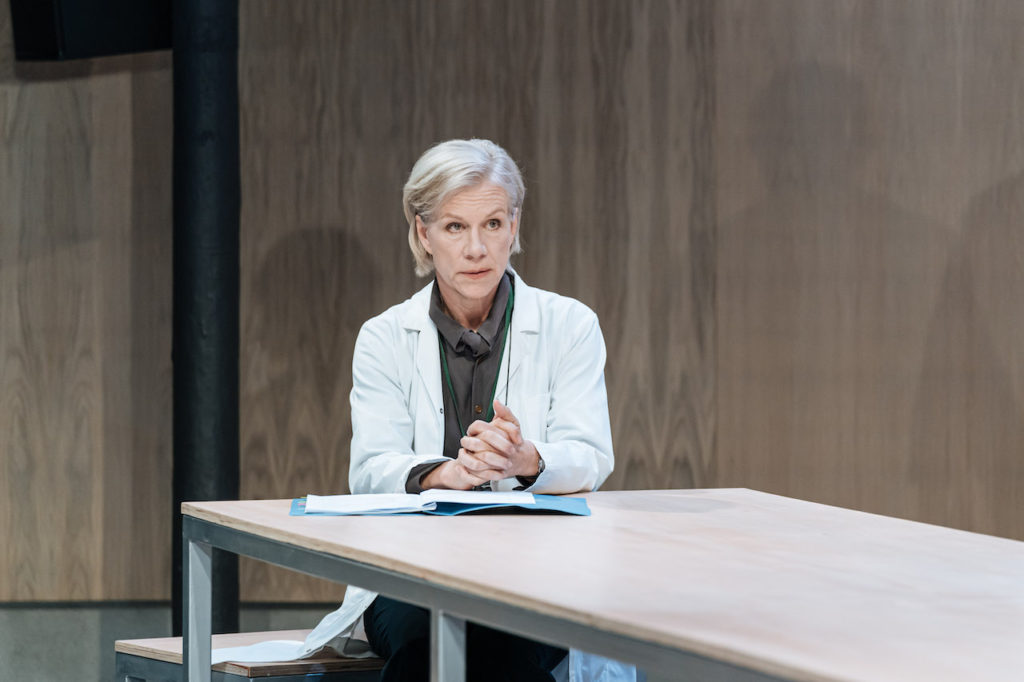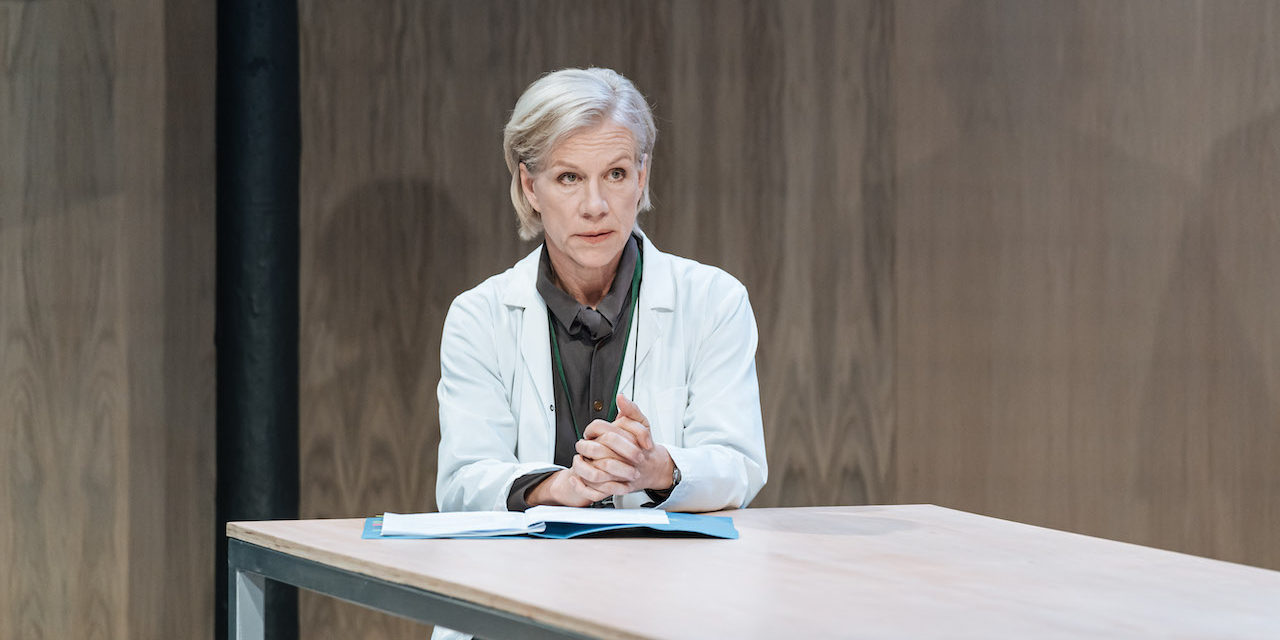
13 – 17 September
Which of us has not found themselves of late exercised by some example of cancel culture and the apparent assault on one or other foundation stone of our society, be it free speech or some other unquestioned nostrum? Old certainties are daily challenged with varying degrees of justification as, for many, things seem to be falling apart in the absence of any consensus.
In Robert Icke’s timely play a much fêted and respected doctor, the head of a medical institute specializing in degenerative diseases, takes charge of the care of a fourteen-year-old girl who suffers fatal complications following an abortion. Although the girl’s religious beliefs are not known, the parents are portrayed as practising Catholics and on hearing of their daughter’s critical condition request a priest to administer the last rites. The doctor, in considering the best interests of the child and in the considered professional judgement that the sight of a priest and the knowledge of why he is there would cause mental distress, physically restrains the priest from seeing her by placing a hand on his shoulder. This act is angrily interpreted by the priest as physical assault and he expresses as much on social media. Such is the nature of the internet that the few handfuls of messages of support for the priest, with the rapidity of a rampant virus, soon becomes a clamour for the doctor’s resignation, which ultimately she is unable to resist.
Ostensibly a play about medical ethics, the play wastes little time in spreading a wider net to consider the underlying notions and presuppositions that surround identity politics. In this we could say it is considering the first bitter fruits of multiculturalism in which many different viewpoints clamour for equal consideration. Ineluctably the various brands of reductionism – race, gender, class, ethnicity – are brought to bear on a simple moral dilemma which becomes turbid in the fertile ground of heightened sensibilities where common humanity is lost amongst the competing claims of ingrained beliefs. Yet we must remember that moral dilemmas are only dilemmas in virtue of the fact that there seem to be equal claims to validity for differing viewpoints.
Juliet Stevenson is the doctor thrown into a maelstrom for an unconsidered act of professional duty. She gives us a character of unswerving self-belief and a spine of steel who must ultimately buckle when the gatekeepers have left the premises and all views must be given their due.
The play does not take sides and as such seems to be a symptom of the very thing it is about. In a curious debating trick I found confusing and can only assume was done in order to detach arguments from the usual suspects, black characters were played by whites and vice versa whilst male characters similarly by women.
However, caveats aside, there is no doubting the relevance and power of this play in addressing some of the most pressing issues of the time.
★★★★☆ Graham Wyles 14th September 2022
Photo credit: Manuel Harlan


